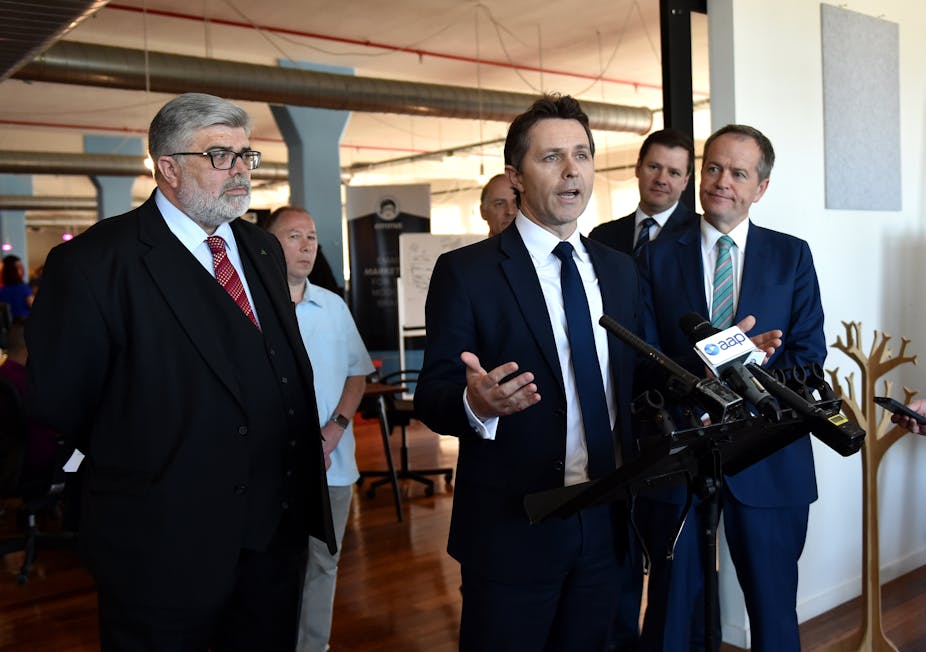A Shorten government would upgrade the National Broadband Network (NBN), rolling out fibre to the premises (FTTP) to up to two million extra homes and businesses.
But the better NBN would not cost the taxpayers more, the ALP promises in a policy released on Monday.
The opposition pledges Labor would cap total funding to the NBN at A$57 billion, compared with the latest government estimate of the NBN’s rollout costing up to $56 billion.
It says the public equity contribution – $29.5 billion – would be the same regardless of who wins the election, and that “there will be no impact on the budget” from the policy changes proposed.
An ALP government would also complete the initial rollout of the NBN by June 30, 2022, the same time the government’s NBN is likely to be finished.
Opposition Leader Bill Shorten said that on Malcolm Turnbull’s watch, “Australia has dropped to 60th in the world in internet speeds. This is disgraceful and a shameful indictment on Mr Turnbull’s mismanagement. Second-rate technology and second-gear internet speeds aren’t good enough.”
Shorten and Shadow Communications Minister Jason Clare said in a statement that Malcolm Turnbull had promised a second-rate copper NBN for $29.5 billion but this had now blown out to up to $56 billion.
“He also promised everyone in Australia would have access to the NBN this year. Currently less than 20% of Australians have access … Worst of all, many Australians are getting a slower, second-rate copper NBN that will not meet their needs into the future.”
Under the ALP plan the construction of fibre to the node (FTTN) would cease when the current pipeline of work finished and the design and construction of FTTP was scaled back up.
A Labor government would commission Infrastructure Australia, with advice from experts, to manage the development of a plan for how and when the parts of Australia that have the current government’s NBN should be moved to FTTP. This plan would be commissioned in Labor’s first term.
The ALP policy says that NBN Co retains a FTTP design and construct capability, already has IT systems in place to manage FTTP, and has construction contracts that accommodate FTTP with no volume restrictions.
A Labor government would honour existing contracts and supply agreements and work with delivery partners and suppliers to manage the transition from FTTN back to FTTP.
The policy says NBN Co currently estimates that design contracts for FTTN will be issued for about 3.5 million premises by June 30, 2016. Under the Labor plan a proportion of these would be renegotiated to achieve the desired policy outcome.
The ALP says it would complete the initial NBN rollout for between $49 billion and $57 billion total funding compared with the government’s current range of $46 billion-$56 billion.
The $57 billion cap Labor would put on the program would have priority over the number of extra homes and businesses to get FTTP in the initial rollout.
The Parliamentary Budget Office has confirmed Labor’s plan would not have a budget impact.
Meanwhile, as the election campaign enters its third-last week, the government on Monday will announce a Reef Fund that will deliver up to $1 billion in finance – in loans and equity – over a decade for projects to protect the Great Barrier Reef.
Turnbull and Environment Minister Greg Hunt said in a statement the finance would be used to tackle the reef’s “two biggest challenges – climate change and water quality”.
The funding is not new money but from the Clean Energy Finance Corporation (CEFC), which would administer the Reef Fund through its $10 billion special account.

